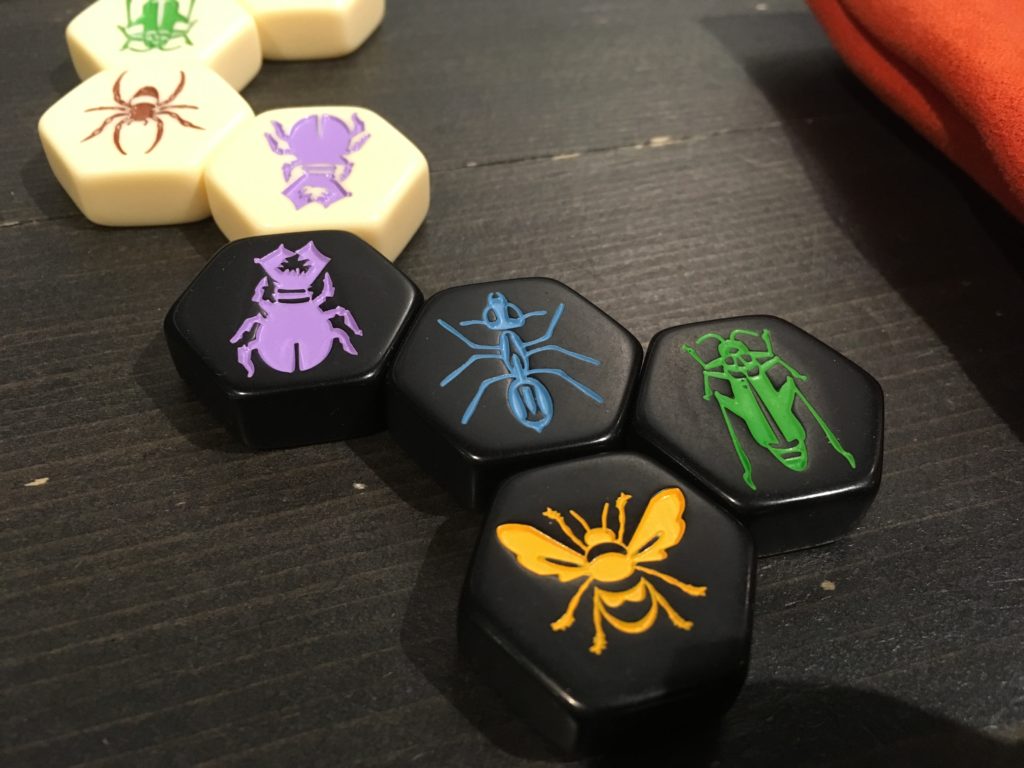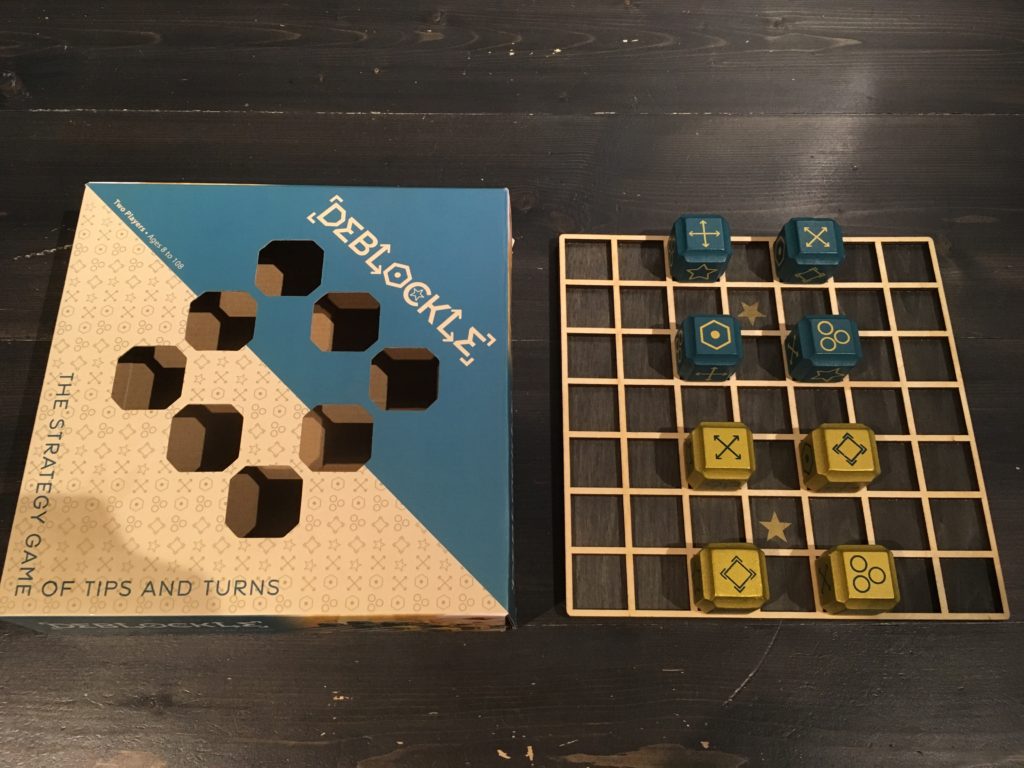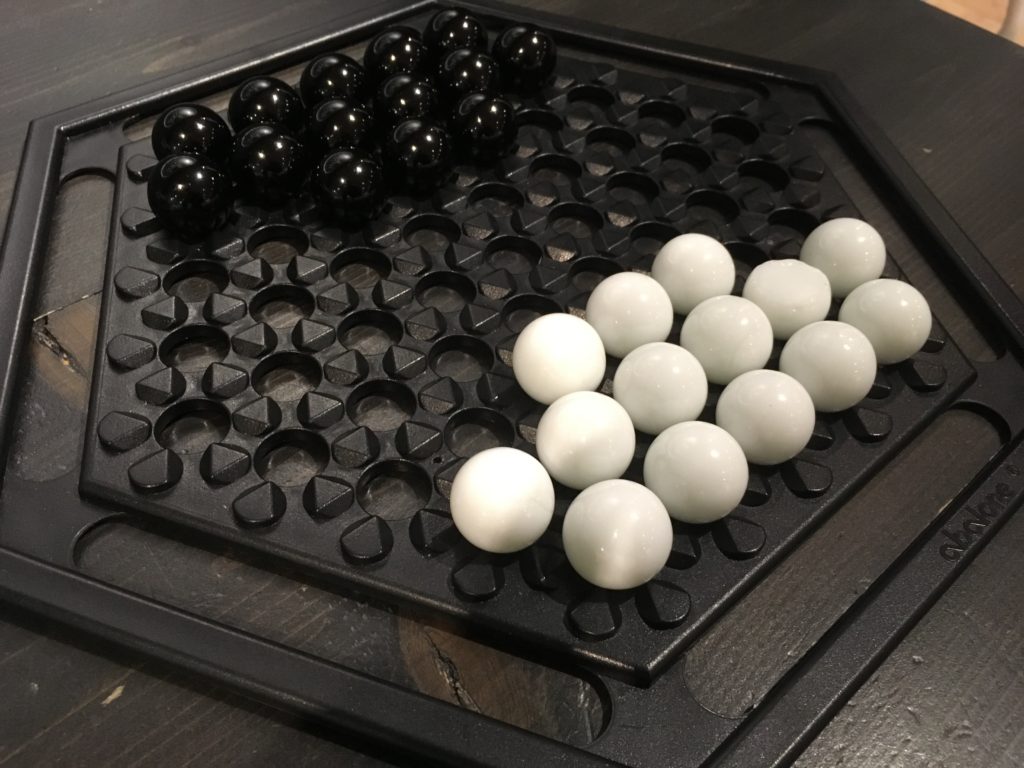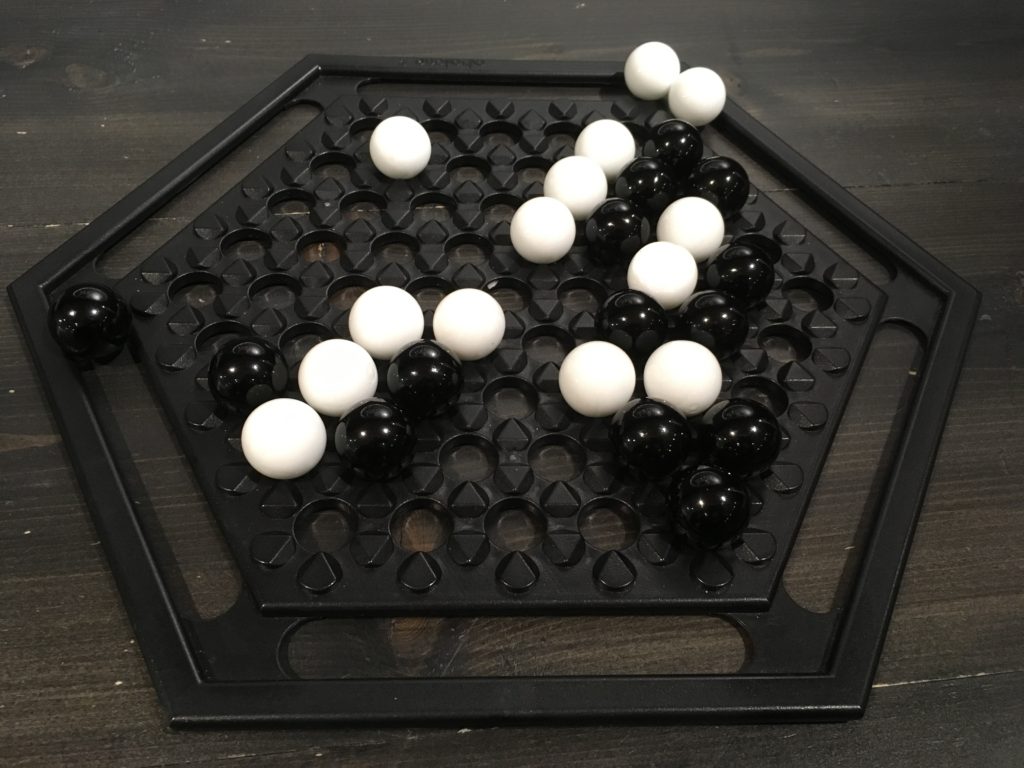Abstract Strategy
You’ve played Chess and Checkers, Connect Four, and maybe even Chinese Checkers or Reversi. You’re kind of good at them, but now you’re looking for something new, challenging, and equally strategic. What do those games have in common? They are all part of a broad genre of games known as “abstract strategy,” which are some of the oldest types of board games.
According to one of the most widely circulated articles on the subject, Defining the Abstract by J. Mark Thompson, an “abstract strategy game” is essentially a game with no theme or a game in which the theme is irrelevant to the actual gameplay. Thompson uses chess as an example; while the pieces are themed with medieval classes (knight, bishop, queen, etc.) you could shape the pieces differently and give them different names but the game would remain unchanged as long as the pieces are all different and each player knows which moves each piece is permitted to do. Another quality Thompson uses to define abstract strategy games is their “purity.” What Thompson means by this is that there is little to no element of luck or chance (e.g. no dice or shuffled cards) in the game, only strategy.
Beyond older games like Chess, Checkers, Connect Four, Chinese Checkers, and Reversi, there are a ton of amazing abstract strategy games that have come out in recent years. These modern classics, while mechanically uncomplex, are deep in strategy and can take a long time to master.
Abalone is one of these modern classics. The game is played with marbles on a hexagonal board, and the goal is to push six of your opponent’s marbles into the track on the outside of the board. Besides being an excellent game (having won many awards since its release in 1987), the way the marbles slide along the board is a fun tactile experience.

Hive is a chess-like game played without a board. You must place and move your ants, grasshoppers, spiders, and beetles so that you can surround your opponent’s bee before they surround yours. Just like chess peices, each hexagonal “bug” has unique moves and so players must choose their initial positions carefully!
Santorini is different from the rest of the games here in that you win by getting one of your workers on top of the highest level of structure before your opponent does the same. Each turn you will move a worker and build a structure, however you can also build a dome to cap off the highest level thus blocking your opponent from winning.

The newest abstract strategy kid on the “block” is Deblockle. Deblockle is like a competitive puzzle, and you always have to think a few moves in advance. Players try to be the first to remove all of their blocks from the board by tipping the blocks into an adjacent square and then performing the action that the new face-up side requires. This one is very interesting, and it will be interesting to see how it holds up next to the other, more tested games in the genre.
These games are favourites at Hexagon, so if you’re looking for something highly competitive but easy to learn, ask one of the Hexperts to teach you!





